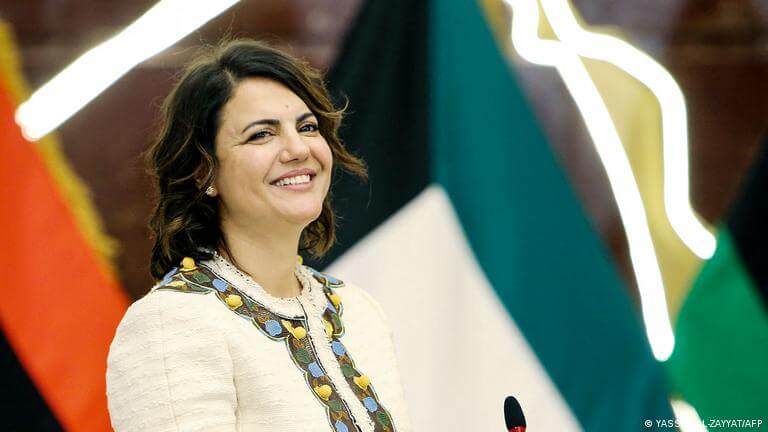Libyan Foreign Minister (FM) Najla Mangoush fled to Turkey, a day after news of a meeting with her Israeli counterpart Eli Cohen triggered protests across the North African nation.
The news stirred unrest in Libya as the country does not recognise Israel officially and harbours a pro-Palestine sentiment in general.
FM Sacked After ‘Historic’ Meeting
On Sunday, Israel announced that Cohen had met Mangoush in a “historic” meeting and called it “the first step of ties between Israel and Libya.”
A storm erupted over the Middle East on Sunday after Foreign Minister Eli Cohen of Israel disclosed a meeting at Rome with his Tripoli counterpart, Najla Mangoush, who was consequently forced to flee. Can relations be repaired? https://t.co/4QdD3cvI4n
— The New York Sun (@NewYorkSun) August 28, 2023
In talks facilitated by Italian FM Antonio Tajani, Cohen also said that Libya’s size and location have huge potential for Israel.
According to Israel, the two sides discussed the benefits of expanding relations and the importance of preserving Jewish heritage in Libya.
Libyan PM Abdulhamid al-Dbeibah sacked Mangoush on Monday after the country saw protests over the meeting held last week.
Libya Denies Israel’s Claims
Downplaying the importance of the meeting, the Libyan Foreign Ministry said, “What happened in Rome was an informal and unplanned casual meeting, during a meeting with the Italian Foreign Minister, which did not involve any discussions, agreements or consultations.”
Saying that the ministry emphasised Libya’s attitudes towards the Palestinian issue in the meeting, the Libyan ministry denied in detail what was reported in Western and Israeli media.
The ministry reaffirmed Libya’s refusal to normalise ties with Israel, calling it a “Zionist entity,” and reasserted its support towards the Palestinian cause.
Mangoush’s office said she had rejected a request for an official meeting with Cohen and the unplanned encounter happened while she was meeting Italian FM Tajani.
However, reports said that the meeting had lasted two hours and was approved “at the highest levels in Libya.”
The Israeli officials said that there was a prior understanding of the fact that the meeting would be made public.
The Protests
As news of the meeting spread, protests broke out in different parts of the country.
Protestors demonstrated outside the Libyan Foreign Ministry’s office in Tripoli.
Protests erupted in Libya after the recent meeting between FM Najla Mangoush and her Israeli counterpart in Rome.
— Al Jazeera English (@AJEnglish) August 28, 2023
With no formal diplomatic ties between the two countries, Mangoush has been suspended pending an investigation. pic.twitter.com/UH2Bu5Uxv6
Similar to several Arab states, Libya does not recognise Israel formally. In fact, as per a 1957 law in the country, it is illegal to normalise ties with Israel. Dealing with the country can be punishable with up to nine years in prison.
With over 97% percent of the country’s population being Muslim, the pro-Palestine sentiment in Libya is popular.
The country harbours a staunch anti-Israel sentiment, a part of which is a legacy of long-time dictator Muammar Gaddafi, who was vocal in his criticism for the Jewish state for its treatment of Palestine.
The new political upheaval has added to the country’s already brittle political situation. Libya is mired in humanitarian and military crises ever since the overthrowing of Gaddafi in 2011.
Israel-Arab Relations
While several Arab countries are starting to recognise Israel following the US-mediated Abraham Accord signed between the UAE, Israel, and Bahrain, the protests in Libya reflect that the popular sentiment against Israel is still rife.

